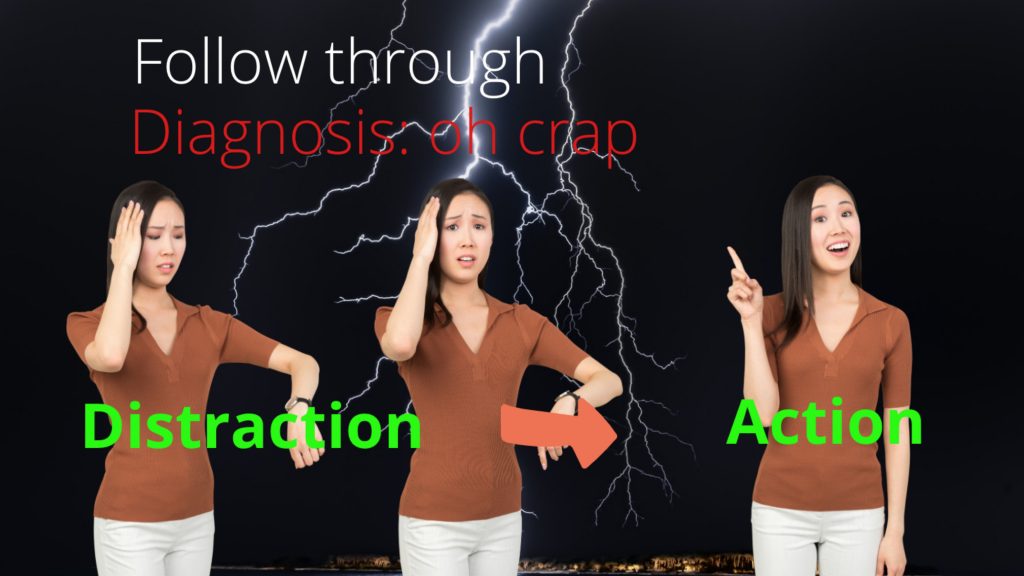This is part two of our Following Through series.
In part one, we talked about overcommitment as a major obstacle to following through. Many of us are vulnerable to feelings of fear, guilt, and obligation that prime us for wanting to please others reflexively by volunteering for their projects while neglecting our own. In part two, we’ll introduce a few more obstacles and suggest treatment options for dealing with them.
Distracted
When you fail to follow-through, take it seriously. Spend time analyzing the distractions that got in your way. Recall the justifications and excuses you made. This reflection is not something that comes naturally to atypicals because our default setting is to focus only on the present moment. This makes it difficult to reflect and learn from our mistakes. We often fixate on the negative emotions of past failures, rather than facts about the experience that could help us adapt and improve future outcomes.
Distractions could be anything, even positive behaviors can become harmful distractions when they keep us from following through on our original plan. My worst distractions are playing on my phone, binge snacking, and daydreaming.
The first step is to recognize the distraction. This is the easy part. Unfortunately, awareness alone isn’t enough to prompt a change in our behavior. In fact, when we are aware of being distracted and fail to change course, we can be very negative. This is where the “No” work begins.
Once you are aware of the distraction, say “No” to it. Demand a reason from yourself as to why this is not your best choice. Continue until you get to the “Yes”; the reason that is powerful enough to make you switch actions.
Your process of reducing distractions will be unique to your situation. Keep working on this until you find some words that help you switch from distraction to action.
Forgetfulness
Sometimes things just slip our minds. It is one of the most frustrating symptoms of ADHD. How can we follow through on something we can’t remember? How can you fight an enemy you can’t see? Well, it’s impossible. We need to use tools to boost our awareness of these obligations.
First, remember to take note of things that you consistently overlook or neglect. Why would that be? Are you insecure about something that makes you unconsciously avoid that responsibility or obligation? This is something that is important to discuss with a therapist. Even the best accountability tools can’t overcome our desire to avoid pain and fear, even if they aren’t real, valid concerns.
Always consult your calendar
Remind yourself what you planned to be doing frequently. Every morning, evening, and throughout the day. This is a check-in. Remember from part one that it should be reflexive to say, “I need to check my calendar first. Could you send me an email with details?” Say this to yourself too. Put your intention in writing. Find time for what you say you want to do.
Set alarms
Make a plan, then make a plan to remember. I need alarms AND visual cues. I write my important tasks on a note and hang it at eye level every day. The more reminders I give myself, the better my chances of following through. Don’t be afraid to feel silly with the lengths you go to follow through consistently.
Make a detailed plan
A plan is not just a list of things that need to be done. In addition to that list of tasks, a good plan includes the time each step will take, a description of the finished product, and tactics to deal with the most likely obstacles.
Treatment Team
Finally, other people can be a great help to look over finished work or remind us of important commitments. If other people are involved, then our accountability gets a natural boost. Sometimes this is an appropriate way to deal with forgetfulness. The problem is that leaning on others for support quickly becomes tiresome for those we rely on heavily. Instead, practice using the other tools listed above, or outsource reminders to a professional assistant or coach.
Ok, that’s a lot for today. Let’s leave it there for now and we’ll see you next week for part three.



